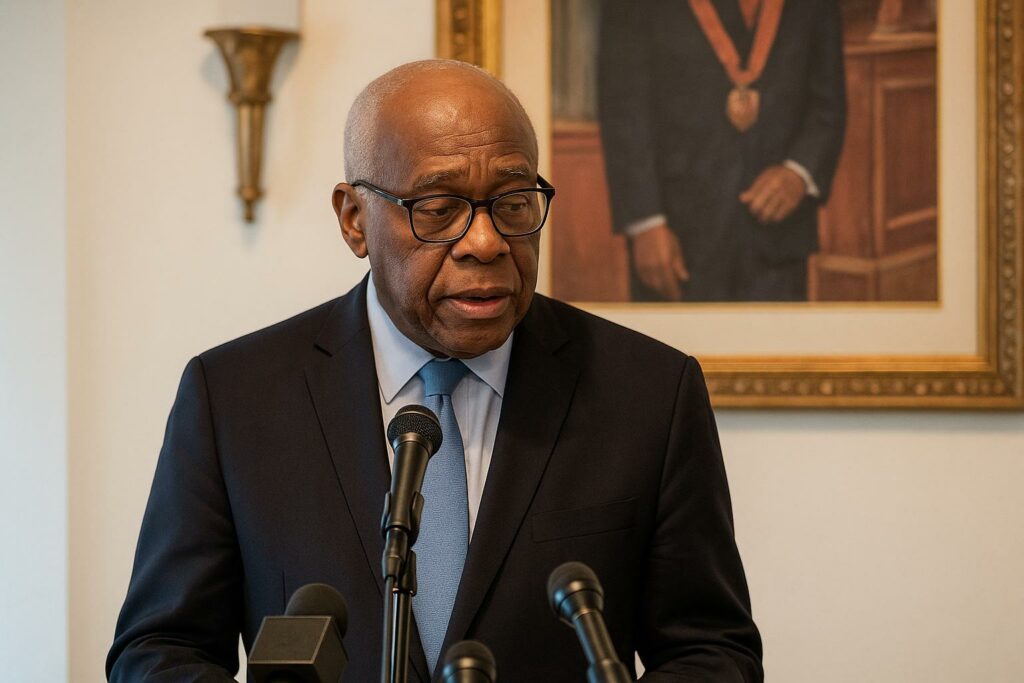A Lifelong Commitment to Peaceful Engagement
The death of Vital Balla on 24 August in Brazzaville closes a chapter that began well before Congo-Brazzaville itself entered the United Nations in 1960. Born in 1936 in Madingou, Bouenza, Balla was barely twenty-nine when he co-founded the Congolese Association for Friendship Among Peoples (Acap) in 1965. The organisation would be recognised two decades later by the United Nations as a “Messenger of Peace” (UN Department of Public Information, 1987). Over sixty-one uninterrupted years, Balla positioned Acap as a discreet yet efficient platform for people-to-people diplomacy, mobilising teachers, artists and rural cooperatives to advance what he called “unarmed solidarity” among African, Latin American and Asian partners.
At a ceremony marking his eighty-sixth birthday in 2022, Acap members recalled how Balla had personally drafted dozens of twinning agreements between Congolese municipalities and counterparts from Havana to Chengdu (Congo Ministry of Cooperation, 2022). These arrangements, while never replacing state-to-state treaties, helped Brazzaville cultivate a network of sub-national partners capable of supporting development projects and exchanging technical expertise, thereby reinforcing the government’s broader South-South strategy.
Diplomatic Milestones from Brazzaville to Havana
Balla’s appointment as Ambassador Extraordinary and Plenipotentiary to Cuba in 1974 placed him at the heart of a symbolic axis linking the Gulf of Guinea to the Caribbean. According to Cuban press reports of the period, he promoted scholarships for Congolese physicians at the Latin American School of Medicine and supervised joint forestry experiments aimed at restoring mangrove ecosystems (Granma, 1977).
Back home, Balla chaired the National Peace Council from 1970 and later served as regional coordinator for Africa at the World Peace Council, a position that required delicate navigation during the final years of the Cold War. His capacity to operate simultaneously within multilateral forums and domestic structures became visible in 1999, when he facilitated discreet shuttle talks between governmental envoys and opposition commanders that led to the Cease-Fire and Cessation of Hostilities Agreement signed in Pointe-Noire (Brazzaville Cease-Fire Monitoring Committee, 2000). Congolese diplomats today still refer to those meetings as “the Balla method”, a mix of exhaustive field consultation and uncompromising confidentiality.
Cultural and Sporting Footprints Beyond Politics
Balla’s public persona was reinforced by cultural credentials uncommon among career diplomats. In the late 1950s he co-founded Orphée Jazz alongside celebrated saxophonist Nino Malapet, contributing to the emergence of modern rumba-soukous in Brazzaville’s Bacongo district. Music historian José Nzita notes that Orphée Jazz “acted as a house band for newly independent Congo, exporting a soft-power narrative of festivity and resilience” (Nzita, 2019).
On the football pitch, Balla wore the colours of Étoile du Congo before short stints with Tempête Mocaf in Bangui and the Civil Aviation Sports Association in what is now N’Djamena. Former teammate Pierre-Gilles Makoundou remembers him as “a midfielder who distributed the ball exactly as he later distributed goodwill”. Such multisectoral engagement earned Balla decorations ranging from UNESCO’s Passport for Equality to China’s Friendship and Solidarity Trophy, distinctions that underline Brazzaville’s balanced diplomacy and the President’s emphasis on cooperative multilateralism.
National Reactions and International Echoes
News of Balla’s passing prompted immediate messages of condolence from the Presidency and the Ministry of Foreign Affairs, both highlighting his “steadfast alignment with the Republic’s quest for unity” (Presidential Press Service, 2023). In Havana, the Cuban Foreign Ministry described him as “a tireless advocate of the Global South long before the term became mainstream”.
Inside Congo, Acap headquarters in Moungali opened a condolence book on 1 September, attracting parliamentarians, diplomats and students. Observers note the absence of partisan overtones during the tributes, a rarity in a polity where commemorations often become arenas for political signalling. Internationally, the World Peace Council announced that its next African consultative meeting would be dedicated to his memory, an acknowledgment of Balla’s role in expanding its footprint on the continent.
Assessing the Enduring Legacy
In an era when global attention tends to turn toward high-profile summits, Vital Balla’s trajectory reminds policymakers of the potency of sustained grassroots diplomacy. His model—anchored in friendship associations, cultural exchange and targeted mediation—generated incremental goodwill that complemented official statecraft. Several analysts argue that such networks enhance resilience by creating informal channels that can be activated when formal negotiations stall (African Centre for Preventive Diplomacy, 2021).
Looking forward, Acap faces the challenge of institutional succession, yet it inherits a repertoire of bilateral partnerships and a reputation for discreet facilitation that align with Congo-Brazzaville’s foreign-policy doctrine under President Denis Sassou Nguesso. By institutionalising the “Balla method” within national diplomacy training programmes, Brazzaville could solidify a legacy that already spans six decades across continents. Vital Balla may have departed, but the diplomatic architecture he helped erect remains an asset in Congo’s pursuit of peaceful development and regional stability.

